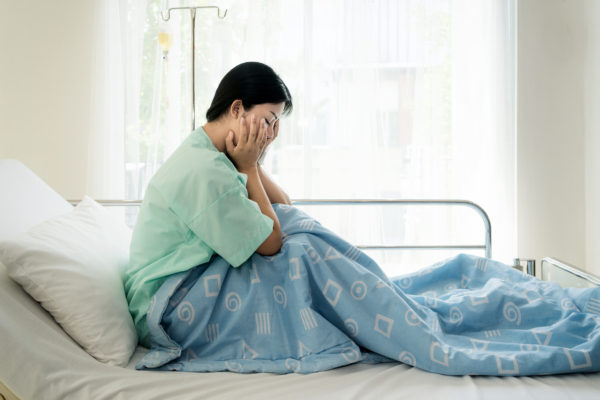Each year, there are approximately 3,855,500 births in the United States. Along with births are spontaneous abortions, commonly known as miscarriages, that occur in women. A miscarriage is a natural or unintentional termination of a pregnancy where the fetus is not capable of surviving, usually before the 20-week mark. A host of controversies exists about what causes a miscarriage. Recent studies reveal that the chance of miscarriage increases as pregnant women consume large amounts of caffeine and rises according to the female’s age and pregnancy history.
A study in 2008 attempted to assess the role that caffeine consumption plays in causing a miscarriage. The study examined the effect of caffeine intake on pregnancy outcome in 1,063 pregnant females who never changed their normal caffeine consumption from October 1996 through October 1998. Sources of caffeine consumption included coffee, tea, caffeinated soda, and hot chocolate, and the study controlled for variables such as nausea, vomiting, and caffeine aversion to investigate the true effect of caffeine consumption. The study found that pregnant women taking in more than 200 milligrams of caffeine per day doubled their risk of miscarrying versus pregnant women who consumed no caffeine. Women taking in fewer than 200 milligrams of caffeine daily increased their risk of miscarriage by more than 40%. Caffeine seems to be the primary culprit as opposed to other possible chemicals in coffee because the risk of miscarriage was consistent across all sources of caffeine. In total, 173 women miscarried in the study.
Caffeine poses harm to the fetus because the substance is able to cross the placenta (the barrier between mother and developing baby) to the fetus, and caffeine is a difficult substance for the fetus to break down because their metabolic system is still developing. Caffeine could also hinder cell development and decrease the blood supply to the fetus through the placenta.
Image Source: UrsaHoogle
According to a Norwegian Health Institute study, women who become pregnant between age 25 and 29 have a 10% chance of miscarriage. The chances of a miscarriage rises quickly after a woman becomes pregnant after 30 years old with the highest miscarriage rates of approximately 53% in women who become pregnant over the age of 45. Furthermore, a history of miscarriage multiplies the chance of miscarrying in the future. The study found that the risk of miscarriage eventually quadruples after three consecutive miscarriages.
Although there is not a single definitive cause to a miscarriage, ways to prevent miscarriage may include talking to a physician about typical caffeine consumption patterns and moderating it during pregnancy as well as discussing the chances of miscarriage due to age and prior pregnancies.
Featured Image Source: © ake1150 / Adobe Stock










